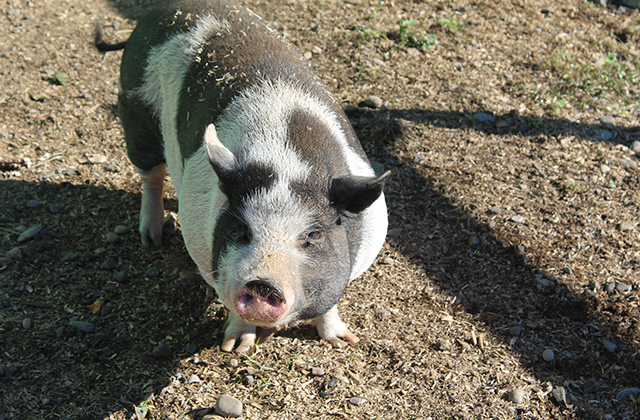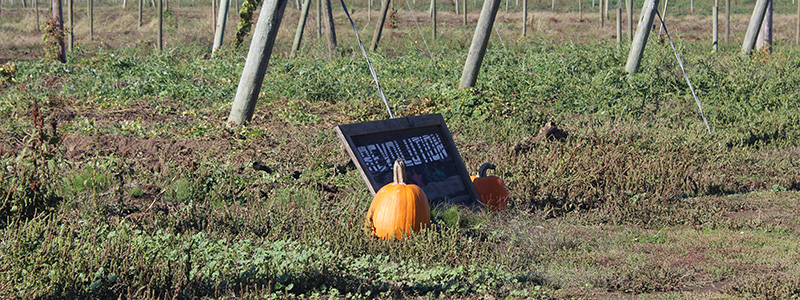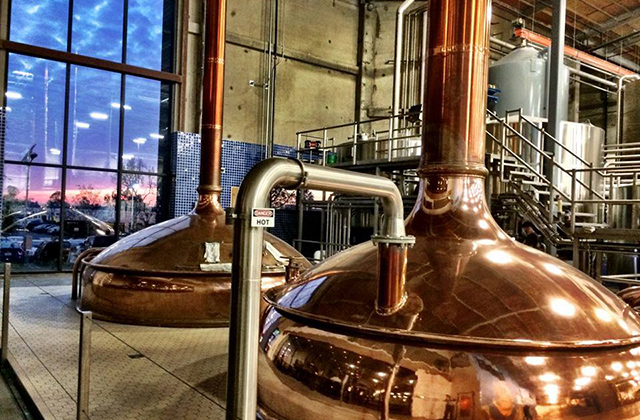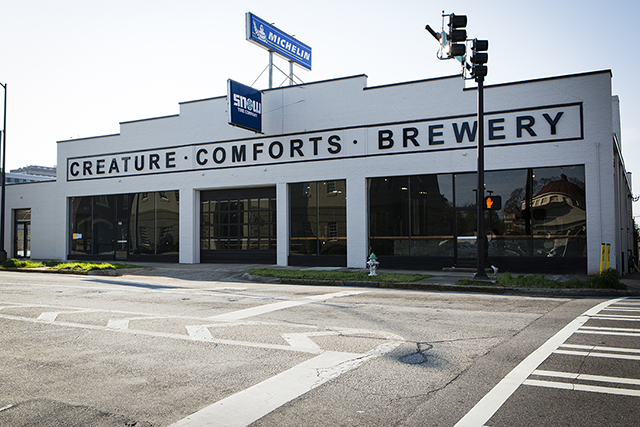
Being in Oregon this past week I was blessed with some beautiful weather and a gnarly storm on the coast. However, to my own luck, on the day that was perfect I got to check out what I believe was the full circle of the brewing experience.
Rogue Ales and Spirits simply operates differently. When I spoke with Brett Joyce about all the brewery’s different endeavors, including Rogue Farms, he simply stated that the company felt like it fit the mission — Dare, Risk, Dream.
It was actually launched as an idea following the hop shortage in 2008. The company that prides itself on hop usage simply couldn’t take a chance of not having hops. And while the farm doesn’t provide Rogue with 100 percent of its hops, Joyce said it has reached almost 50 percent.
While the idea up front sounds brilliant, Joyce also admitted that it wasn’t financially better. The hops that Rogue uses from its own fields actually costs more than buying in bulk. Additionally, that goes for the malt that’s grown on the farms.
While growing hops and malt might not be beneficial financially it acts as a strong safety net for the brewery, allowing it to grow, experiment and use as many hops as it would like. It also allows Rogue to brew beers with ingredients all contributed from the company.

Not only does the farm grow hops and malt, but it also grows hazelnuts, cucumbers, jalapeno peppers and pumpkins. They also raise bees, which developed the honey in Rogue’s award winning Honey Kolsch.
The farm really provides a full 360 degree view of the brewing process, and it’s one that the team truly prides itself on. They consider the farm, the brewery, the distillery and cooperage to be the full spectrum of their business.
Cheryl Gillson, Rogue’s Beer Farmer, spends hours on the farm day and night ensuring everything is cared for, maintained and harvested properly. She also handles all the tours of the farm and has a deep understanding of the ingredients side of beer.
While a Gillson-esque individual might seem like a bit of luck Rogue stumbled upon, and it might have been a little, it seems that’s part of the Rogue culture. Gillson didn’t start out as a Beer Farmer. Instead, she’s moved around throughout the company for 11 years. But, as a lot of Rogue employees will attest, they don’t always find themselves where they thought they’d be in the company.
Don’t take that as employees in wrong places, but rather the exact opposite. Rogue, just like any other company has needs. It has designed a culture where the team members see the need and often, at times, step in to fulfill the need. You have marketers as Beer Farms (like Gillson), you have brewers in operations, brewers that become coopers, etc.
While a lot of it may seem overwhelming or unheard of by a traditional craft brewery, it’s fair to note that no one at Rogue sees themselves as traditional. They believe in challenging the status quo at every turn. Maybe that’s the Nike influence trickling in, or maybe it’s simply the spirit of Jack Joyce that has found its way into the hearts of all Rogue employees and continues to be driven through his son Brett.
Either way, what Rogue showcases is a true experience when examining a brewery. In fact, it might be unfair to just call it a brewery. Rogue is more than that … it’s actually a vision.






Be the first to comment